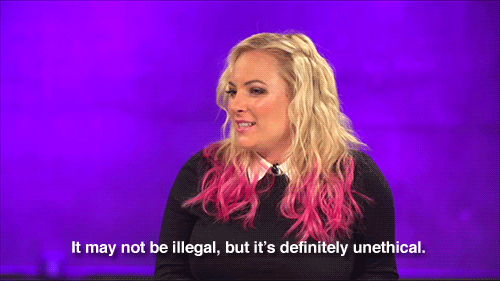Calling the weed market “mature” is like calling Ivanka Trump a trained diplomat.
Yes, the sector has attracted bucket loads of institutional money, and there are a few profitable companies.
But despite a veneer of respectability and competence, the weed biz is still wobbling awkwardly on its heels in the DMZ, trying to be liked, trying to be legitimate.
“Would I invest in the cannabis industry?” asked Mark Cuban rhetorically in 2016, “No. Not because I have anything against pot. I don’t care. But right now, it’s a gold rush.”
Equity Guru (EG) principal Chris Parry participated in that gold rush, helped create a new class of investors and then – in opposition to his own immediate interests – advised – nay begged – EG readers to take profits off the table.
“Back in 2015, we had this big weed run because it was new and exciting”, wrote Parry in the epic, “Time for a Dad Talk”, “Valuations were doubling and tripling. But it was okay because there were catalysts: Who will get the next grow license? Who is getting their inspection?”
“I’m begging you, Sparky,” added Parry, “Sell half of what you hold, take a little out of the market, secure your future, and reinvest the rest in things you believe will double not in a month, but in a year. Real companies that do more than just grow in stock price.”
Since then, we’ve participated in a few more weed sector investment cycles. Equity Guru writers have shouted about companies we believe in, and warned you about others that are bullshit factories or flat out immoral.
Entering late to this oscillating Wheel-of-Fortune is William “Beau” Wrigley Jr (54) who has made a $65 million bet, trying to duplicate the success of his family’s old chewing gum empire in the nascent cannabis industry.
If business DNA matters, Beau has it. In 1891, his great-grandfather William Wrigley Jr. came to Chicago and started a business selling Wrigley’s Baking Soda with $32 seed money.
To entice customers to buy his baking soda, he offered free chewing gum. When he realised the gum was more popular than the primary product, he switched gears.
Great-grandpa Wrigley sold a shit-tonne of chewing gum. In 1921, he became the majority owner of the Chicago Cubs – now valued at $2.15 billion.
Twelve years ago, Beau Wrigly helped orchestrate the sale of the family chewing gum business to Mars Inc for $23 billion. He left that business for good.
Wrigly recently led a $65 million investment round for Surterra Wellness, a medical cannabis start-up in Georgia with dispensary licenses to operate in Florida and Texas. The funding brought the total raised so far to $100 million. It has since passed $350 million.
Beau Wrigly, who is now the CEO of Surterra, claims his experience with product distribution and brand-building will help create cannabis profits.
This significant financing reflects Surterra’s ability to attract a sophisticated, curated investor group who trust our vision, business model and financial track record,” states Surterra’s website
When Surterra talks about its “curated investor group” it is pitching a version of the “smart money” story.
“Smart money is cash invested or wagered by those considered experienced, well informed, ‘in-the-know,’ or all three,” states Investopedia, “There is little empirical evidence to support the notion that smart-money investments perform better than non-smart-money investments; however, such influxes of cash influence many speculation methods.”
“We understand how to execute,” Wrigley bluntly told CNN Business.
Since Wrigley became CEO eight months ago, Surterra has closed a few deals:
- Launched Coral Reefer brand with Jimmy Buffett’s Margaritaville.
- Global licensing deal with The Endless Summer brand.
- Acquired Las Vegas-based The Apothecary Shoppe.
- Bought Massachusetts-based NETA.
- Closed $100M deal with Intrexon to advance fermentation-based cannabinoid production.
“I truly believe, in many respects, that I’m building the next Wrigley Company,” stated Beau Wrigly, “When I understood the massive benefits [of cannabis] it really changed my mind about the industry. You don’t see too many opportunities to have that kind of an impact in an industry that is being created from scratch.”
“The funding will accelerate our expansion as we add new iconic brands, build out our scalable infrastructure, invest in innovation, and fuel our next stage of growth across the U.S. and global markets.”
To seasoned pot investors, that sounds like corporate-weed-gobbledy-gook circa 2015 – but Beau Wrigly is new to the business, so let’s cut him some slack.
Chris Parry sighs heavily when he’s pitched an idea to get rich selling vape pens on-line in Czechoslovakia, but for wealthy U.S. fund managers like Wrigly, the international weed space is still shiny and new.
When a 54-year-old dude that sold his family biz for $23 billion says, “This is a great time to invest in weed”, others will follow him.
The salient point here, for all weed investors, is that this party (cannabis investing) is not over.
Yes, some of its limbs are diseased.
But those limbs will fall off.
The industry is not dying.
Welcome, Mr. Wrigly.
You are not too late.
– Lukas Kane



